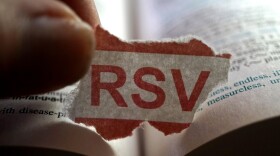The monkeypox virus typically causes fatigue and flu-like symptoms. But that’s not always the case.
“What we’ve been seeing with our patients and what we’ve been seeing in reports from other patients is that a lot of patients are not presenting with that initial flu-like syndrome,” said Dr. Scott Roberts, associate medical director of infection prevention for Yale Medicine.
“They are presenting with isolated, painful lesions commonly on the genital areas, especially in those who have recently had a sexual encounter with somebody who has had monkeypox.”
Roberts expects an increase in Connecticut cases to spill over from New York, but there’s not much that the general public can do to avoid monkeypox, except avoiding contact with people who may have an unusual rash.
“It’s very, very unlikely to get monkeypox if you pass somebody in the hallway or take an elevator ride with them,” said Roberts. “It really does require that really close, prolonged contact. Or direct contact with an infected skin lesion.”
Monkeypox doesn’t spread the way COVID-19 does. But a study in The Lancet Microbe in June using predictive modeling showed that in the absence of public health intervention to limit its spread in non-endemic countries, 30 cases could cause 118 secondary cases.





